
Alors que sa réputation est écornée en Afrique à cause d’une série de poursuites sur certains chefs d’Etat, la Cour pénale internationale tente de polir son image dans le continent. En ce sens, un séminaire réunissant les professionnels du Droit de l’espace sous-régional est organisé à Dakar pour mieux diffuser l’information sur les activités de la juridiction internationale.
Mohamed El Bachir, Hissein Habré ou encore Laurent Gbagbo … Ces figures du continent africain sont inscrites sur les petits papiers de la Cour pénale internationale (Cpi) qui les poursuit pour divers délits, allant de crime de guerre, tortures ou génocides. Mais cette image de «traqueurs» de dirigeants africains semble gêner la Cpi qui entreprend de polir cette réputation. Elle a ainsi regroupé hier à Dakar les spécialistes du Droit pour le premier séminaire sous-régional des conseils et de la profession juridique organisé au Sénégal.
Créée lors d’un traité international (Statut de Rome), la Cpi s’est plus distinguée par l’arrestation d’anciens dirigeants africains que ceux du reste du monde. Un constat qui se justifie par la forte présence de dignitaires africains, composant les 10 détenus de la Cour. La liste se dresse comme suit : Thomas Lubanga Dyilo, Germain Katanga et Bosco Ntaganda, tous de la Rdc, Jean Pierre Bemba Gombo, Aimé Kilolo Musamba, Fidèle Babala Wandu, Jean Jacques Magenda Kabongo et Narcisse arido (République centrafricaine), Laurent Gbagbo et Charles Blé Goudé de la Cote d’Ivoire. Ces hommes sont poursuivis selon les 4 types de crimes qui relèvent de la compétence de la Cour. Ce sont le génocide, les crimes contre l’humanité et les crimes de guerres, commis après le 1er juillet 2002, ainsi que les crimes d’agression.
Mais à en croire Amady Bâ, la Cour pénale internationale ne cible pas seulement les Africains. Il précise même qu’elle agit sur interpellation des pays concernés. «La Cour est une juridiction de deuxième ressort. Elle n’intervient que si le système judiciaire national est défaillant et n’a pas la volonté ou la capacité d’enquêter ou de poursuivre (…) Par rapport à l’Afrique malheureusement, les affaires qu’on a actuellement nous ont été renvoyées par les Etats eux-mêmes», fait remarquer M. Bâ, qui soutient que la thèse d’un ciblage de l’Afrique ne peut prospérer, car au sein de la Cpi émargent des juges africains.
Une «indépendance» de la Cpi que défend le Garde des sceaux, ministre de la Justice.
Admettant une «crise» entre l’Afrique et la Cour, le futur président de l’Assemblée des Etats partis du statut de Rome se donne comme objectif, lors de son prochain mandat, la «réconciliation» Afrique-Cpi. Me Sidiki Kaba reconnaît qu’il y a «une crise entre l’Afrique et la Cour. En Afrique, beaucoup d’Etats pensent que la Cpi est contre l’Afrique. Il faudrait changer cette perception des choses pour montrer que cette Cour est aussi pour l’Afrique un partenaire, car y comptant 34 pays parmi les Etats signataires de la Charte de cette juridiction».











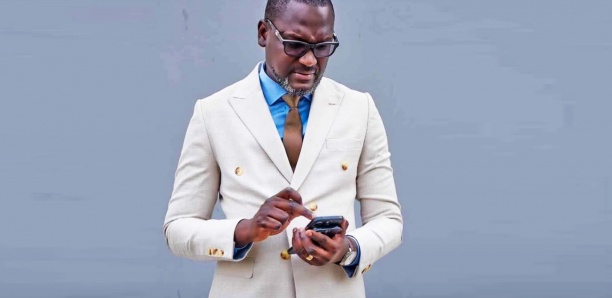



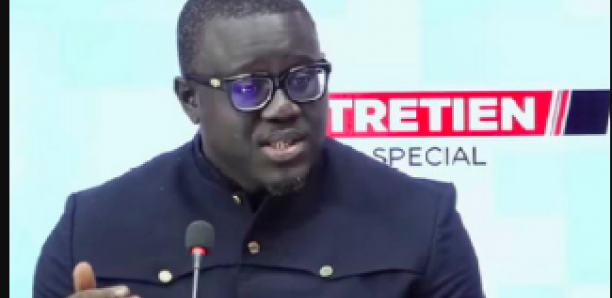






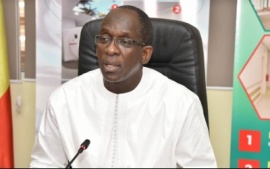
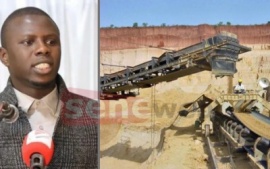
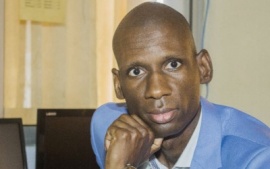
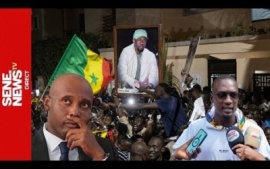

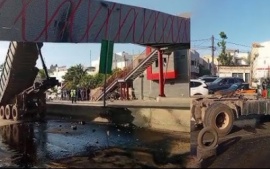
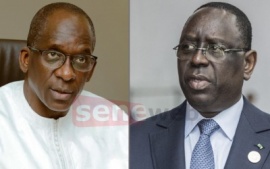
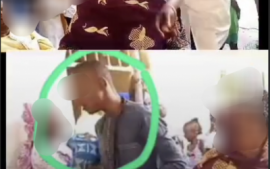


10 Commentaires
Kouthia Show
En Octobre, 2014 (17:51 PM)Cpi.
En Octobre, 2014 (18:45 PM)Diop
En Octobre, 2014 (18:50 PM)Regardez bensouda, regardez ce Mr Ba qui veut nous faire avaler des couleuvres? gbagbo celui qui est arriver au pouvoir par les urnes est humilie alors que Wattara chef rebel est libre. Kenyatta un digne fils de l'afrique que la cpi veut salir...CPI est et reste une cour d'injustice colonial sinon ou est sarkozi?
Senegalll
En Octobre, 2014 (18:54 PM)Thedon
En Octobre, 2014 (22:44 PM)Salla N'gary Lam Toro
En Octobre, 2014 (00:39 AM)L'histoire retiendra le massacre de sabra et chatilla. Des centaines de civils palestiniens massacrés devant les forces intérimaires des nations unis au Liban.Jusqu'à présent aucun dirigeant n'a osé le dénoncer.
Le pire c'est qu'au vingt unième siècle,Israël continue sa politique de colonisation des territoires palestiniens sous la complicité de la communauté internationale.
Qu'attend la CPI pour intervenir?
Et toi sénégalais qui aspire à la justice à la paix et à la liberté,qu'attends tu?
Diop
En Octobre, 2014 (02:06 AM)Manno
En Octobre, 2014 (03:02 AM)Voici un Campaore apres 27 ans de pouvoir refuse de quitter le pouvoir. Il est pret a tue son peuple pour y rester, malgre les engagements pris. Qui le jugera lorsqu'il aura commis toutes les malversations envers son peuple.
Bravo CPI!
Venez prendre tous les DICTATEURS AFRICAINS UN A UN
Manouelzo
En Octobre, 2014 (08:00 AM)Ababacar Sadikh Niang
En Octobre, 2014 (11:32 AM)Justice plays a “crucial role” in maintaining international peace and security: ICC Prosecutor briefs the United Nations Security Council
On Thursday, 23 October 2014, the Prosecutor of the International Criminal Court (ICC or the Court), Mrs. Fatou Bensouda, briefed the United Nations Security Council (UNSC) in New York, in an open debate on the constructive role the Council can play in support of the exercise of the Office of the Prosecutor's independent mandate, organized by the Argentine presidency of the UNSC.
"We believe that the rights of women and children, indeed the rights of all civilians in times of conflict; the protection of peacekeeping missions and the rule of law are topics of common importance for both of our respective institutions. The same holds true for the crucial role justice plays in relation to the maintenance of international peace and security," said the Prosecutor.
Focussed on the working methods of the UNSC, the open debate took place almost exactly two years after a similar session was organized by Guatemala, and provided a unique opportunity to exchange on how the Council can support the work of the Court and propose concrete solutions to the specific challenges that will make a difference to the victims of mass atrocities.
At the meeting, Prosecutor Bensouda emphasized the continued need for cooperation and follow-up to UNSC referrals and the need for mechanisms to ensure timely and coordinated support. She underscored the importance of States Parties within and outside the Council working together and in one voice, as well as the need to think proactively about how the Council, the Assembly of States Parties and the ICC can work in concert within their respective mandates, to advance the crucially important goals of ending impunity for mass crimes and promoting the international rule of law.
Calling for the appointment of a single focal point for interaction between the UNSC and the ICC, the Prosecutor outlined a number of areas where enhanced coordination could provide greater follow-up to relevant Council resolutions. Lack of adequate and effective follow-up on referrals to the ICC is a matter of continuing concern, shared with the Council, said the Prosecutor. Citing the Darfur situation, the failure to implement aspects of resolutions referring situations to the ICC, she said, can reflect a much deeper problem. Prosecutor Bensouda noted that of the fifty-five resolutions on the Sudan, very few had been implemented, suggesting the need to review them collectively as well as individually.
The Prosecutor also invited the Council to use clearer language in its referrals, in particular concerning the obligation of all States to cooperate with the ICC and to uphold its judicial rulings.
Prosecutor Bensouda called for serious discussion on effective arrest strategies, expressing her sincere hope that the UNSC "can definitively call on all UN Member States to provide the necessary assistance." She proposed that a focal point for interaction between the UNSC and the ICC could be of practical assistance on this issue and in a number of other helpful ways, including the question of the outstanding response of the Council to the ICC's findings of non-cooperation. "It is not only a question of focusing on non-cooperation of specific States," said the Prosecutor, "but of looking more positively and proactively at how to encourage cooperation as specific challenges arise.''
Finally, the Prosecutor urged the UNSC to take into consideration that the lack of State or UN financing for Council referrals "has a real impact on the ability of my Office to conduct full and effective investigations in the Darfur and Libya situations" in light of the need to revitalize both of these investigations.
In the spirit that sustainable peace and security cannot be achieved without justice, Prosecutor Bensouda stressed that "[t]he Council assumes a crucial role in the emerging system of international criminal justice and must embrace this role with all the opportunities for constructive engagement that it provides." She concluded by welcoming "further interaction on specific challenges, and to seeking the intersections and synergies between the ICC's and the Council's separate and independent mandates" in so far as they enhance humanity's yearning to seek impartial justice for "mass crimes that shock our collective conscience and 'threaten the peace, security and well-being of the world'."
The Office of the Prosecutor of the ICC conducts independent and impartial investigations and prosecution of the crimes of genocide, crimes against humanity and war crimes. The Office of the Prosecutor is currently conducting eight investigations: in Uganda; Democratic Republic of the Congo; Darfur, Sudan; Central African Republic; Kenya; Libya; Côte d'Ivoire and Mali. The Office is also conducting preliminary examinations relating to the situations in Afghanistan, Colombia, Georgia, Guinea, Honduras, Iraq, Nigeria, Ukraine and the situation referred by the Union of the Comoros.
ICC Prosecutor Statement to the United Nations Security Council on the Working Methods of the Security Council
Participer à la Discussion